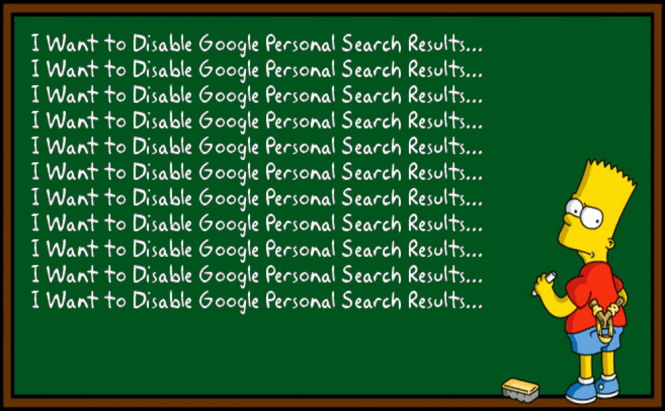 Do Social Networks Undo the Harm of Personalized Search?
Do Social Networks Undo the Harm of Personalized Search?
Big Brother Loves You
When I first heard of Google Personalized Search, I thought it was kind of neat. Basically, it accesses your previous search records and filters information during a new search not only according to relevance, but also depending on your history of visiting thematic sites and searching for specific information. It increases the relevance of search results for you if you look for something similar often. For example, the music you like. Or documents and research materials. You don't even have to be registered to use this feature. The programming makes it access your anonymously stored browser and do the same thing.
But then, as I experienced the Web remembering my browser history and helping me out, I felt sort of scared. Not because I had been browsing something terribly bad (yet of course I had), but because this feature, so useful at first glance, actually handicaps the user it is trying to help.
Think about it: when you search for something, is it really that good to be gently and lovingly cut off from any information you don't want for this particular task? What if you stumble onto something interesting, albeit completely removed from the current operation? What if you want to return to it later? Not going to happen now, because personalized search will only give you same old, same old.
Google have explained that in order to make the personalized search work they create databases taking into account a gender, race, sexual preferences etc. Some may call it profiling, but it actually works and does not deal with ethical side of things whatsoever. Yet there are concerns.
Maybe I'm dramatizing, but imagine a world of people having no chance to broaden their horizons with the help of eventuality. People only knowing what they already know and learning only what they are required to learn by the situation. People divided into interest groups never crossing. It's almost like ghettos for the mind.
Be Yourself Alone
And while we are on the topic of collectives, Facebook has long since converted its news feed into a set of personal kingdoms. Basically, in this day and age a person surfing the Net can surround themselves with only the things they like. And not only hobbies or entertainment fall into this category. Studies show that politics, ideology, education become subjects of personalization. Is that good? Maybe it is. Far less conflicts, far less stresses and unwanted exposure to something violent, cruel or dangerous. But at the same time, filtering such thing makes you ignorant. Not being exposed to something that differs from your knowledge and point of view leads to isolation degradation. And personalization does not offer any motivation for active pursuit of something not included in your Facebook settings and cookie history.
The Kingdom of Man?
It goes on. Personalization and globalization of interests is getting support from any technological development. Instant articles, Facebook's own browser, just like Google's, personal ads, personal access. You can block anything from reaching you and use the information caringly provided to you tailored according to your wants. The man has conquered the Net. Or did he?
Yes, you can create a seemingly unique personality on the Internet with you personal favorites on Facebook and master the search for your favorite things. But no man is an island, as the old saying goes. Personality is defined not only by what we like and want, but by everything we encounter. And removing anything else from your path is like taking away all food except for cake. It's tasty but it will give you diabetes eventually.
Also, accessing the Internet from your computer is different from accessing the reality from your head. Someone else might need to use you computer and they will be exposed to the personalized environment made for you, not for them. So, in addition to blinding you, it presumes to strip them of their individual wants and needs.
Here, Facebook and other social networks become a cure for Google's flawed personalization. They, at least, allow for a diversity in their user base. And Facebook, at least, provides for a chance to connect to other people, learn what they like and learn. No man is an island, and no man can be reduced to a single interest that may initially connect you.
The twist of fate is that with the inclusion of search personalization new findings become the area where the most personal of spaces — your Facebook page — transforms into a doorway to something new.
Does personalization need to be abolished, then? No. No idea is useless in itself. What personalization needs is an incentive to go beyond the comfort zone. Personal search and personal space in social networks need to be configured in a way that allows for eventuality, but prevents flood and does not chain hardware and software to one isolated personality. And this leaves us with a need for new developments, new findings and new hopes.



